31, October 2023
Hail to a Founding Patriot – Rev Dr Andrew Ambeazieh Ofembe 0
When the Jews left Egypt for their Promised Land, some of them fell on the wayside and did not enter the gates of that Land, including their leader Moses. By transitioning at the doorstep of the foot-of-the-mountain, Rev Andrew Ambeazieh has become one of the Moses of the Ambazonian quest for freedom and restoration of their Homeland. When the Americans fought their war of independence, valiant patriots fell on the battle field while some died from frost bite and even more died in prisons and detention camps. When the French rose up against Tyranny, most of them faced the guillotine for their convictions and their commitment to liberte, egalite and fraternite. When black South Africans stood up against Apartheid, patriots like Steve Biko, were murdered in detention.
Even so, Israel is today free and strong. Even so, America is today the light and the hope of democracy. Even so, the French today have no kings and their President can never again, state as a matter of fact and law that ‘L’etat c’est moi”. Even so, Mandela and the Rivona Nine walked out of Prison on the 11th of February 1990 to a free and eventually democratic South Africa.
Today, we are gathered to celebrate the life of a unique and singular Ambazonian Patriot. A man ordained by God to serve humanity. A man who, because he wanted his people to walk the narrow, slippery and steep road of righteousness, justice and brotherhood, was captured, abducted, persecuted and prosecuted and technically “executed” in detention by cancelling his Bail by the court of appeal for health reasons just to allow him waste in prison custody.
A man who had the foresight and the courage to challenge one of the most brutal institutions on earth – the LRC government. For this he was captured. A man who knew the real meaning of autonomy, sovereignty and national identity because he was young enough to understand when the British Southern Cameroons came out of the Western House of Assembly in Enugu to stand alone as an independent political entity in Buea.
A man who saw the inauguration, installation and workings of parliamentary democracy when the British Southern Cameroons had the first fair & free multi-party elections in Africa on the 24th of January 1959. A man who saw the first peaceful transition of power in African politics from Endeley to Foncha, before the deluge of orchestrated and Machiavelli independence charades that only served as precursors to neo colonialism and imperialism.
A man who lived the tomfoolery of pseudo independence and the stark nakedness of international illegality, fraternal inhumanity and LRC’s cruelty and incivility. A man who witnessed the legitimacy of typical Anglo-Saxon elections obliterated by the whims and caprices of a tyrant and his French masters – from 1966 to 1990 and then again, as a fluke in 1992.
A man who witnessed the Anglo-Saxon system of education and common law under which he grew, bastardized into an unrecognized smokescreen (poison) where corruption, nepotism, favoritism and mediocrity shamelessly took the places of meritocracy, fair play, equity and hard work.
A man who witnessed all of these and was disappointed. In his disappointment, he spoke up. When he spoke up, he was prosecuted. And when he was prosecuted, he protested. And when he protested, he was termed a terrorist, abducted, detained, sentenced and incarcerated until the date of his transition into eternity, 11th Oct 2023, at a Yaounde maximum security prison, the Kondengui Prison Principale, from where I write this eulogy.
A man, who has lived, seen, fought and died for a cause. In so doing he gave a different meaning to terrorism and patriotism. Through his non-violent protests, he mustered the courage and the effrontery to tell Ahidjo, Biya and their French Masters that Southern Cameroons was not francophone and hence was not on the market stall to be bargained, negotiated and exploited. He had the courage and effrontery to write the famous “Quit Order Notice” asking Mr Biya’s LRC government to leave Ambazonia.
In so doing, he followed in the footsteps of Albert Ndongmo, Albert Mukong, Um Nyobe, Ernest Ouandie and Roland Moumie. Like these nationalists, he demonstrated with his life that the fight for one’s homeland is worth paying the ultimate price for. Like these nationalists, he demonstrated with the tacit acceptance of his wrongful persecutions and prosecutions that justice delayed is justice denied, and justice denied is also justice destroyed. This is because denial is a function of time and destruction is a function of ancestral and divine ordination. Even on his dying bed, Patriot Rev Andrew Ambeazieh saw the confines of prison as only a premonition and precursor to the total and unconditional freedom of Ambazonia. He lived for it. He worked for it. He prayed for it. He believed unreservedly in it. And he died for it.
He died believing in the fundamental faith and convictions of all authentic Ambazonians in the fate of our Country as a free, independent and sovereign nation. He died believing in the tenacity, bravery and insurmountable courage of our self-defense fighters all over the territory of Ambazonia. He died believing in the unconquerable spirit of our Diaspora and their inexhaustible measure to give and keep giving, to sustain the liberation struggle by all means possible. He died believing that there is still hope that can be derived from the common humanity of the international community and all international stakeholders who can bring about a just and equitable mediation and resolution of this senseless and unnecessary war that has been cast upon the hapless population of Ambazonia.
With this belief, Patriot Rev Ambeazieh died a victorious soldier and Commander. He conquered the false fear that was perpetuated by LRC and nursed all over our land for 62 years and counting. In conquering this fear he won for himself and for all of us Ambazonians the freedom to speak freely, the freedom to associate with all other Ambazonians within and without Ambazonia, the freedom to think all the progressive thoughts that we bring all Ambazonians together under one national tent to self-determine and to self-realize. So even though his body died in the dungeons of an LRC maximum security prison, his spirit was free and is now flying all over the hills and valleys of Ambazonia.
Inspiring us and injecting us with the rejuvenation that is necessary to carry us across the Mungo to Buea, and across Matazem to Bamenda.
This is the ultimate certification and award that a Patriot can earn. Patriot Rev Ambeazieh has not only earned it but has valiantly, as any soldier imaginable or any Commander in chief that ever lived, worn his Patriotism and lived his nationalism. “We will get to Buea and enjoy the ‘Bonitas’ of our homeland” he always proudly said. We will have our autonomy and sovereignty, he always confidently declared.
Dear departed brother, friend, and father; Rev Andrew Ambeazieh Ofembe. The Ambazonian community at the Kondengui Prison Principale Yaounde (KPPY) has been missing you since the 11th of October 2023. We miss you every morning at our meditation, we miss you at our tea and bread sessions and during dinners (meals which we provide out of our own Ambazonian resources). We will continue to miss your daily routine of trying to build bridges in the best way you knew how. Your family will miss a devoted son, a generous husband and an irreplaceable father. Ambazonia will miss a hero, a nationalist, a leader and a blue blood Patriot Founder.
My first eulogy message on this occasion, captured as theme of our morning meditation on Monday 16th Oct 2023 was “We are still marching forward”. Today, we beseech all Ambazonians therefore, to go forth and remember that each time we see a beautiful sunrise and heavenly sunset, in the horizon, please stop and commune with the spirit of our Patriot Founder. Each time we feel the gentle breeze of the Mandara range in all of the Savanah State, please pause and commune with the enduring spirit of our fallen Patriot Founder. Each time we see the waves wash on the shores of Victoria and Idenau, we should pause, pick a pebble and throw into the Ocean to keep the faith with the interceding and protective spirit of our Founding Patriot. Each time we maintain a minute of silence, we say his name in our hearts, to remind us all of the founding mortar that we shall all cast at the foot of the flag when we formally lay the foundation of the Federal Republic of Ambazonia.
We are sure that ours will be called the Founding Generation of Ambazonia, because of what patriots like Rev Andrew Ambeazieh have left behind; a nation for us to defend, a flag for us to fly and an Anthem for us to sing … Hail, Hail, Hail this land of Glory …
Fare thee well dear brother, father and comrade. May the land of our ancestors be welcoming on to you and may your soul find peace & rest in the bosom of our Creator. REST IN PERFECT PEACE.
Sisiku AyukTabe
Kondengui Principal Prison Yaounde (KPPY)
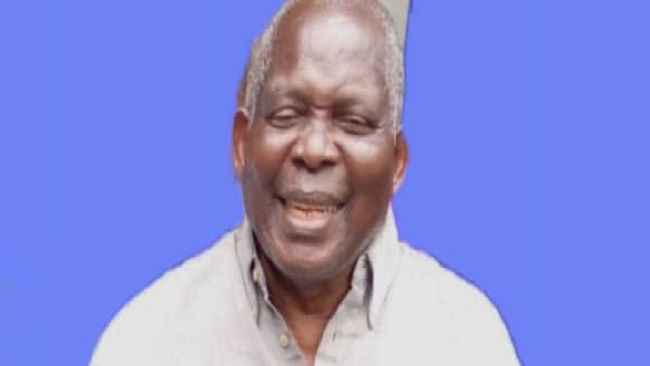
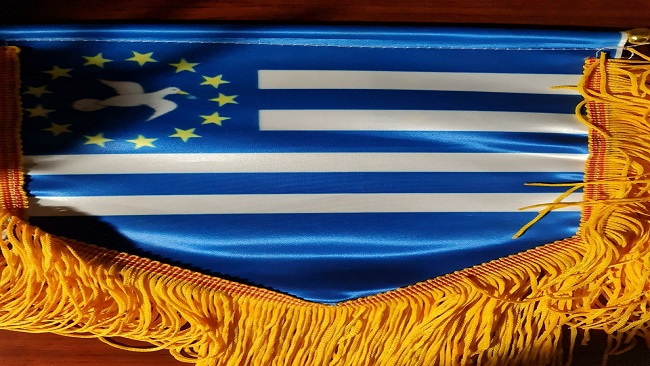
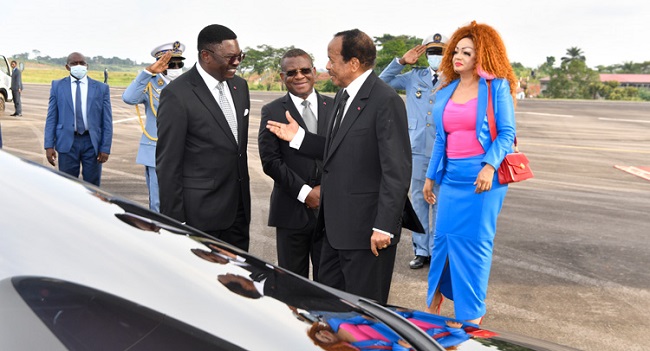
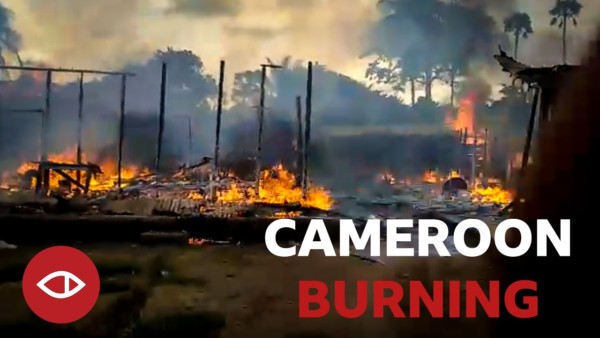

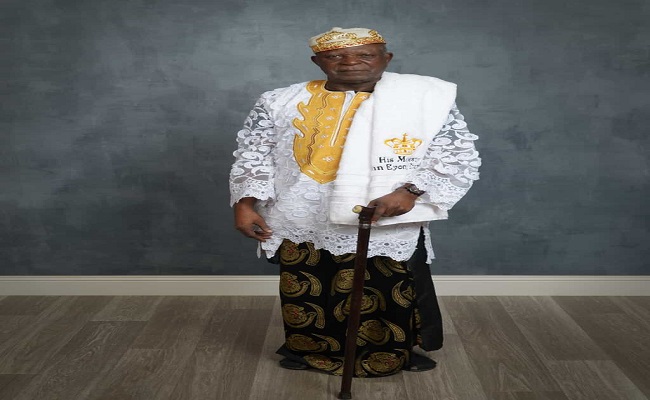
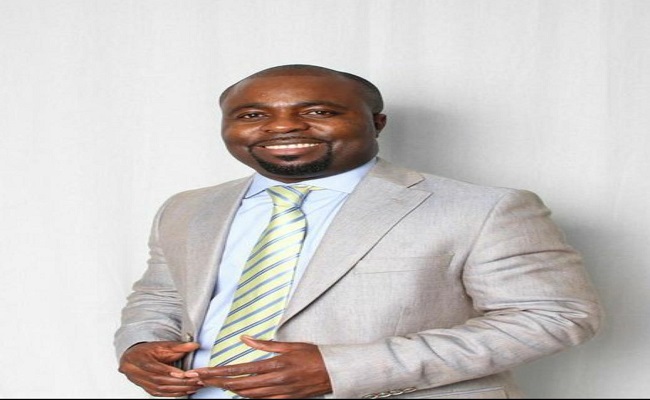
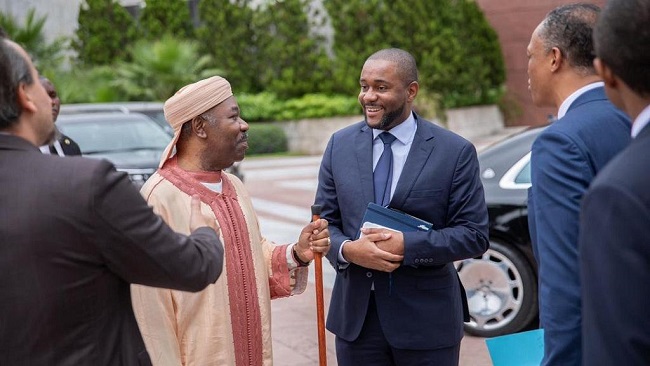















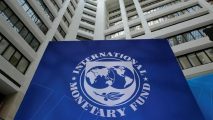


7, November 2023
Biya’s 41 Years in Power: The scorecard is dismal! 0
Today marks forty-one years since Cameroon’s President, Paul Biya, took over from the country’s first President, Amadou Ahidjo, who resigned supposedly for health reasons. Ahidjo, the man who had made Cameroon the purpose of his being, had always dreamed of transforming the country into an earthly paradise.
He had designed the educational system to enable Cameroonians compete favorably at the international level. The quality of education was good and this helped the country to make giant strides towards sustainable development. Though the country was bereft of massive financial resources, the country’s first president made up for this shortage of financial resources with discipline and determination.
Due to the lack of resources, the country did not have a good road network, but from 1977 when oil was discovered, the country’s fortunes changed for the better. Many infrastructure development projects were lined up and their implementation was marked by rigor and discipline.
But this changed in 1982 when Mr. Biya succeeded Ahidjo. Though he had served as the country’s Prime Minister under Ahidjo, he had not learned that discipline was a key ingredient in the implementation of national policies and projects. No initiative succeeds without discipline!
By 1985, the country’s economy and politics were already showing signs of chaos. Discipline which characterized the Ahidjo regime had taken French leave of the Biya regime. Mr. Biya, unlike Ahidjo, had prioritized loyalty over competence and this has cost the country a huge fortune. He brought his tribesmen into government without conducting the proper background checks and there are lots of crooks and dishonest people in the system.
Though the Centre and South regions of Cameroon account for less than 10% of the country’s population, Mr. Biya tribesmen make for more than 70% of appointed government officials, with many not having the appropriate experience and qualifications to drive major operations and policies!
Today, the country has one of the worst road networks on the continent. Each day, thousands of Cameroonians die of road accidents and, for decades, the government has not found it necessary to develop road infrastructure which will reduce both travel times and death toll on the country’s roads. Times have changed but the Biya regime is frozen in time.
Regarding the economy, things are not looking good for the country. Unemployment is high; many young Cameroonians are looking outward. Government policy regarding employment in the civil service has left many from other tribes desperate. Loyalty trumps over qualification and in certain cases, many people have been caught with fake certificates, especially people from the president’s tribe.
Universities which are supposed to serve as centers of excellence have been transformed into brothels as the culture of sex-for-marks has been fully entrenched and this is happening with the tacit approval of the country’s authorities. The country’s higher education minister, Fame Ndongo, has been presiding over this mess as he himself has been at the centre of massive sex scandals in the ministry he leads.
Mr. Biya and his ruling CPDM may be celebrating today, but they know they have brought untold hardship on Cameroonians. Most young Cameroonians want to leave the country and even retirees are relocating to countries like the U.S and Canada because their retirement incomes leave much to be desired.
The country is amongst the dirtiest on the continent with its towns and cities not going through any form of town planning. The government does not seem to have an inkling of structured existence as slums are popping up all over the nation.
Regarding security, the government is struggling. Crime rate has increased significantly, with soldiers and police officers even renting out their weapons to criminals for a fee. Even when the population reports a crime, the police hardly act. It is always a waste of time for police officers to be called to the crime scene as they will never make it.
Either there is no fuel in the car for them to use, or when there is a car, there is no fuel. Sometimes, security forces even seek to know the type of weapons the criminals are carrying. This is to ensure that they do not get into a fierce fight with heavily armed criminals. Kind police officers will even tell the frightened victims to call neighbors to help them. That is the country Mr. Biya will be leaving for future generations.
Mr. Biya has been a master at divide-and-rule. He has succeeded to pit tribes against tribe, and there is evidence that the day he exits, there will be bloodshed in the country. Currently, there are killings going on in Southern Cameroons where a fierce rebellion against the Yaoundé government has sent some ten thousand Cameroonians to an early grave and things could get worse if Mr. Biya suddenly dies.
For the public service, it is the worst the continent has. Corruption is rife and Cameroonians have to pay millions of francs to get admission into professional schools. Every sector of the public service has come up with a scheme to exploit the ordinary citizen and the country’s authorities have decided to look the other way while government officials exploit their fellow citizens.
Cameroon under Mr. Biya has been a living hell. Many Cameroonians prefer to look outwards as the government has failed to create opportunities for its citizens. 41 years in power have rolled the country back into grinding poverty and, in development terms, the country has been taken back by at least 100 years. Today’s celebrations could be described as a celebration of failure, inefficiency, greed, corruption and dishonesty. This is the legacy Mr. Biya will be leaving behind.
By Soter Tarh Agbaw-Ebai